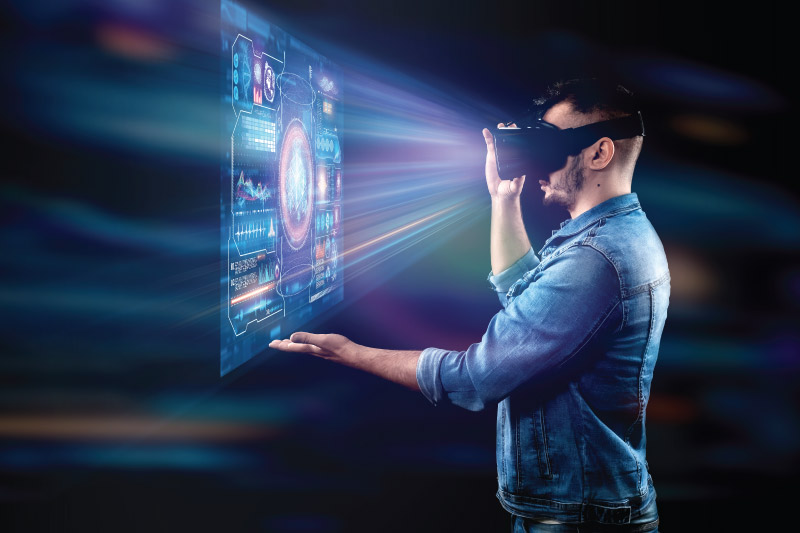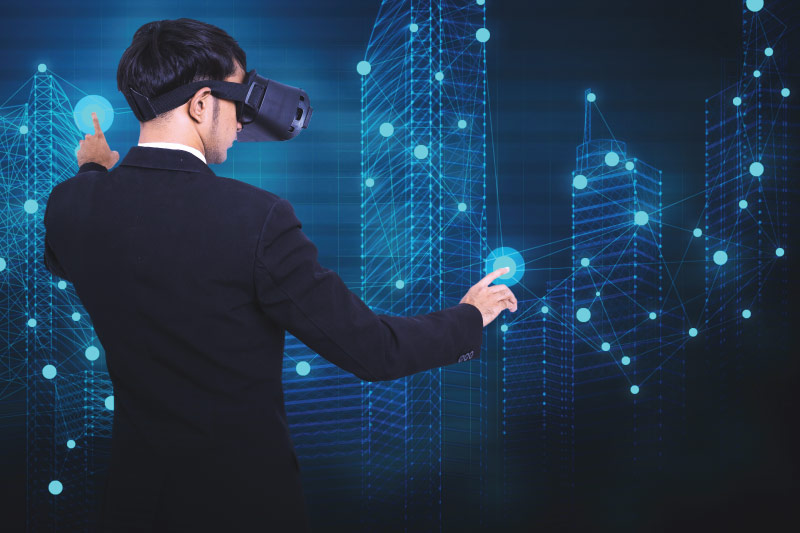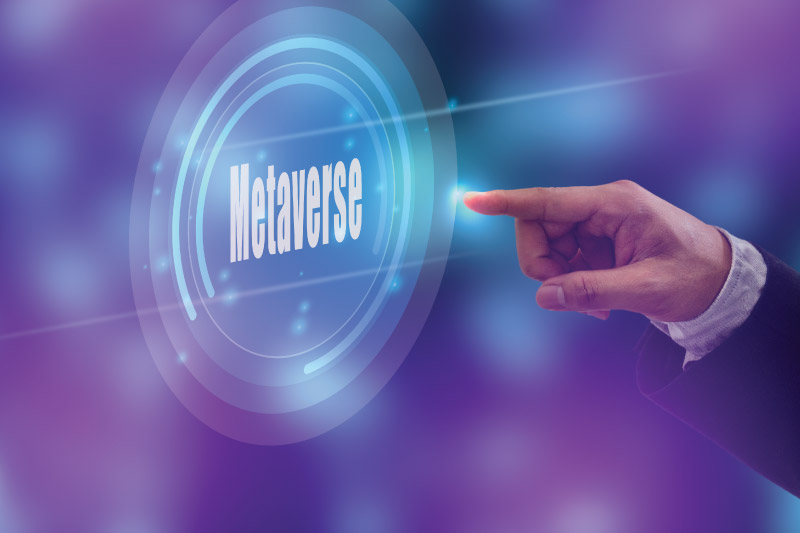Whether you’ve come across Facebook CEO’s (now Meta) off-putting virtual avatar, a digital night-out in Decentraland, or Fortnite’s live concerts, there’s no escaping the internet’s new favorite buzzword – the Metaverse.
But what is it? Is it the dystopian future you always see in social sci-fi shows? Is it a virtual universe with endless possibilities? Or is it just a pretentious way of categorizing extended reality (XR), which is an umbrella term encompassing virtual, augmented, and mixed reality technologies?
And what does the introduction of metaverse spell for the domain of B2B marketing? Let’s tackle all these questions one by one.
What is The Metaverse?

Although the term “Metaverse” has been floating around for quite a while, it was actually coined by Neal Stephenson in the 1992 sci-fi novel Snow Crash. In the book, the Metaverse was referred to as an all-around digital world that exists parallel to the real one.
The idea is somewhat similar outside the novel as well. It’s been hailed by many as the next phase of the internet, and Facebook rebranding as Meta is a sign that the idea is getting bigger.
Simply put, the Metaverse refers to highly immersive online experiences made possible by interactive video, virtual reality (VR), and augmented reality (AR) technologies.
How Can B2B Marketers Leverage the Metaverse?
Although much of the initial hype surrounding the Metaverse has been about shadowing daily life inside and virtual reality (VR) gaming inside a fully immersive world, that vision is purely consumer-centric.
For B2B marketing, the benefits of the Metaverse can be leveraged with or without VR headsets. After all, immersion comes in many forms. It includes the collaboration of people in the same 3D virtual space, for which the presence of VR isn’t mandatory. It can happen over a computer or tablet as well.
Here are some of the use-cases of Metaverse in B2B marketing:
Personalized Events

The Metaverse has the potential to pervade all facets of a business. Events tech has already seen a huge jump into more experimental, experiential fields, such as AR and VR implementation and scannable tech. So, it won’t be another massive jump to implement the Metaverse. After all, what’s more, experiential and experimental than a virtual world?
COVID has definitely forced people online. We saw webinars jump in popularity during the pandemic out of necessity. And they have stuck around thanks to convenience.
Therefore, marketers could shift to virtual worlds like Decentraland and conduct virtual conferences in a completely interactive 3D space. Moreover, Decentraland isn’t owned by a specific company and is a decentralized autonomous organization.
By creating meaningful virtual world experiences instead of traditional trade shows, B2B marketers can offer a more personalized experience to their customers.
The entire next generation of online meetings and conferences could be immersive metaverses, as there are no boundaries stopping the attendees from exploring any variety of products, spaces, and interactive experiences. Instead of simply creating a digital version of a physical trade show, these 3D immersive metaverses can transport all attendees to engaging and personalized journeys customized for each visitor.
Communicating Complexity Efficiently
B2B products and solutions can sometimes be too tangled and intricate for the average customer to unravel, and B2B marketers usually struggle with consistently communicating the differentiated value of the products due to the complexity. Tapping into the Metaverse can help you allay this pain point.
With an interactive metaverse, you can help your buyers understand complex environments and workplaces. When you bring in visually immersive demonstrations into the picture, you get the opportunity to communicate complexity effectively, paving the way for more efficient marketing meetings and for shorter sales cycles.
Achieving Enhanced Collaboration

Buying journeys have become increasingly dependent on larger groups of influencers and decision-makers. As a result, it has become imperative to gather all the decision-markers in a singular virtual workspace at the same time to augment efficiency and influence better buying decisions. And Metaverse is a great way to achieve that.
With it, you can achieve consensus and collaboration in facilitating buying journeys that encompass multiple people, geographies, and roles.
Given these possibilities, it’s not farfetched to assume that the Metaverse will surely blur the lines that divide B2B and B2C marketing. It’s a space for both work and play, and the boundaries between the two aren’t clearly defined, offering B2B organizations the opportunity to upgrade their marketing techniques and adopt some non-traditional methods.
In Closing

Today, the dream of a single, all-encompassing Metaverse is mostly just that—a dream. But, the seeds of this concept are shooting up in various ways. There are already multiple virtual spaces, worlds, environments, and zones competing for users’ attention. However, none yet offer an entirely integrated experience.
This will most definitely change in the future, as the idea of Metaverse becomes more democratized. Instead of just one company owning it, the Metaverse will most likely run on the same principles as digital currencies and decentralized apps.
But what will B2B marketing look like in such a space? Only time will tell. In the meantime, organizations can use this opportunity to push the boundaries of their marketing to find their place in the Metaverse.




